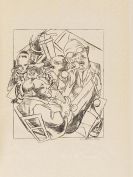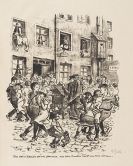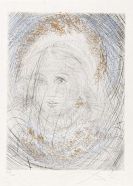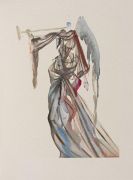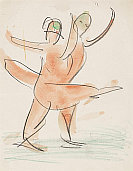
Hugo von Hofmannsthal
Wien
1874 -
Rodaun
1929
Hugo von Hofmannsthal was born February 1, 1874, in Vienna. Hofmannsthal began to publish poetry as a 16 year old student still in the Gymnasium under the pseudonym "Loris." With these first poems and his dramatic studies "Gestern" ("Yesterday"), published also under a pseudonym, "Theophil Morren," he established his early literary fame. Hugo von Hofmannsthal was soon counted among the literary youth of Vienna, a group of literati to which Arthur Schnitzler and Gerhard Hauptmann belonged. He met Stefan George in 1891, which significantly influenced his literary works in years following. Soon after, lyrical dramas like "Der Tod des Tizian" (1892) and "Der Thor und der Tod" (1893) appeared, which like his poetry, are pervaded by distinct death metaphors and bring aesthetics to the last moment of human life. This reveals Hugo von Hofmannsthal as an important representative of Aestheticism.
From 1892 until 1894, he studied law at the university in Vienna, though after his first round of exams and a voluntary, one year term of military service, he turned to Romantic literature. After receiving his doctorate in 1898, Hugo von Hofmannsthal undertook a journey through Europe, meeting among others, the composer Richard Strauss in Berlin, with whom he established a lifelong friendship. He handed in his post-doctoral work to the university in Vienna in 1901, but he decided against academe for the life of a professional writer and retreated from the society of Vienna, moving to the nearby village of Rodaun. Increasingly dispairing of the sufficiency of language as an adequate means of communication, Hofmannsthal tried to overcome his lyricism in the following years.
Inspired by the works of Friedrich Nietzsche and Sigmund Freud, his subsequent works were influenced by the traditions of Greek Antiquity and Western Christianity, including the drama "Elektra," which appeared in 1903 and was based on the drama of the same name written by Sophocles. Richard Strauss set the drama to music and thereby laid the cornerstone of a close cooperation which was groundbreaking for contemporary musical theater. Several more works came of this cooperation. Strauss used Hofmannsthal's "Rosenkavallier" (1911) for the libretti of five more operas, including "Ariadne auf Naxos" (1912) and "Josephslegende" (1914). Hugo von Hofmannsthal was nominated for the Nobel Prize for Literature in 1919 for the first time. He was nominated three more times, though he never won the prize. Hofmannsthal and Strauss founded the Salzburger Festspiele in 1920 together with theater director Max Reinhardt. Every year Hofmannsthal's piece "Jedermann" is still performed here.
Hofmannsthal died on July 15, 1929, in Rodaun, Austria.
Would you like to sell a work by Hugo von Hofmannsthal?
Infos for seller


